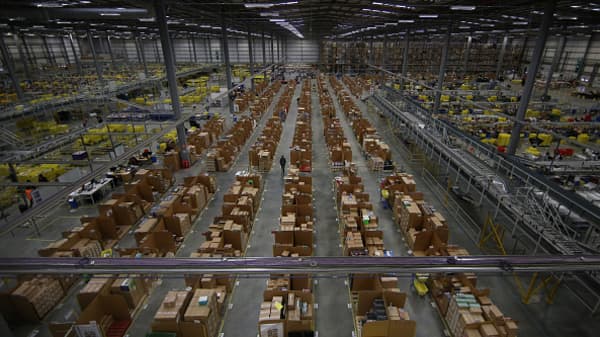Amazon is obsessed with trying to get into our homes.
It has successfully done so by selling millions of Amazon Echo speakers, which are capable of everything from video chat to ordering diapers and reading the weather. Its delivery drivers are able to enter, too, through the Amazon Key in-home delivery service.
And now a report from Bloomberg on Monday suggests it wants to ship robots that roam around our homes as soon as next year. (Amazon did not respond to a request for comment.)
What's with Amazon's desire to infiltrate its customers' houses?
Part of it might be related to customer service, something with which CEO Jeff Bezos seems to be equally, if not more, obsessed. The Echo lets you do such things as track your Amazon orders, buy products easily and play music from Amazon Prime music. And the Amazon Key helps customers avoid so-called "porch pirates" who might otherwise steal packages from Amazon's customers. Amazon Key isn't very good yet, but it does set out to solve a very specific problem for some people.






